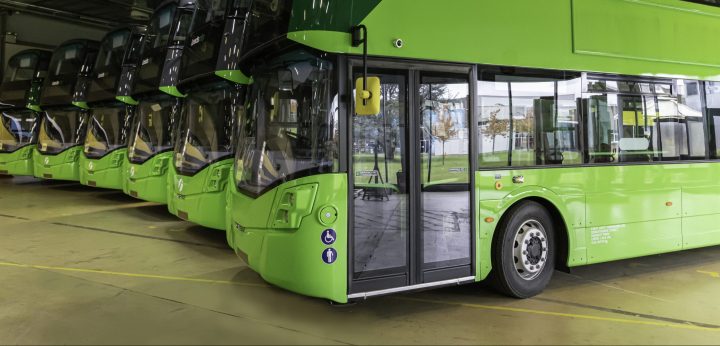Plans for a UK-built 3,000-strong hydrogen national bus fleet have been revealed by JCB heir Jo Bamford in a move he hopes can lead the nations’ economic recovery.
Mr Bamford claims his plans are “an ideal option for a Government that needs to boost UK manufacturing at this critical time whilst radically reducing our carbon emissions and air pollution”, and has already submitted his vision in a document to ministers.
Plans are being drawn up to introduce fleets of state-of-the-art buses – in which passengers benefit from USB charging points and more spacious seating – in places such as Aberdeen, London, Bimingham, Liverpool, Manchester, Brighton, Glasgow, Edinburgh and Belfast, with interest from relevant authorities.
Mr Bamford (right), who leads a green hydrogen production company, Ryse, and last year acquired Wrightbus, a UK manufacturer who have made the world’s first hydrogen double decker bus, proclaims that zero carbon, UK-made hydrogen technologies must play a pivotal role in driving the British economy forward.
He believes that an urgent introduction of hydrogen buses will lead to a knock-on transformation of other heavy duty vehicles, such as lorries, trains, ships and even ambulances and police cars. This would have the potential to create and sustain hundreds of thousands of skilled, green collar jobs across the country.
Greenhouse gases released from transportation account for a third of the UK’s total carbon emissions. Whilst battery powered vehicles are becoming a popular option for household cars, the lack of range and considerable weight make them practically impossible for heavy-duty forms of transport. There are also growing concerns about the mining practices used to find the materials for batteries, as well as what happens to them at the end of their life, with recycling rates lower than 5% in Europe and the US.
Hundreds of local authorities have declared climate emergencies, and local politicians are becoming increasingly interested in the potential of hydrogen to power local transport.



